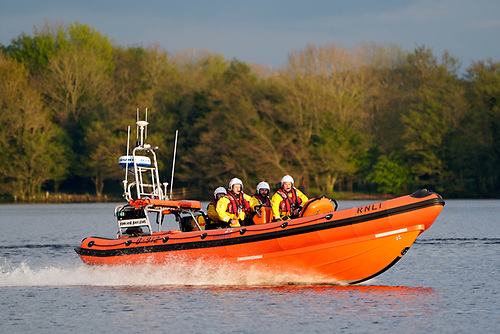The Clogherhead RNLI station in County Louth is celebrating its 125th anniversary this year, marking over a century of dedicated service to saving lives at sea. Established in 1899 under the auspices of the RNLI, the station was built with a corrugated galvanised iron boathouse on a concrete foundation and a short slipway. The first lifeboat placed there was the 'Charles Whitton,' which cost £582 at that time.
Today, the lifeboat station in Clogherhead houses a much more technologically advanced boat than the vessels that served the northeast coastline in the past. Nevertheless, the volunteer crew proudly employs it to do the same job as all its predecessors over the last 125 years—to help save lives at sea.
The Clogherhead RNLI's 125th anniversary is a proud milestone for the village and the wider community. The crew members are 'on call' 365 days a year, 24 hours a day, ready to respond to a personal pager that can sound at any time of the day or night. For that reason, the volunteer crew members live locally, and it's wonderful to see their level of commitment to their regular training exercises and availability to launch and crew the lifeboat at a moment's notice.

Personnel within the RNLI closely monitor the level of training required for shore and boat crew. Volunteer administrators, fundraisers, and RNLI Shop staff at Clogherhead RNLI also work together to keep the 'boat afloat.'
The RNLI is often confused with government agencies that are funded by the state, but it is, and always has been, a charitable organization depending on public support. It is a testament to that unwavering support that the Clogherhead station is still in existence 125 years on, manned by a crew of volunteers, as has always been the case down through the years.
The station at Clogherhead now has a state-of-the-art Shannon class all-weather lifeboat, the 'Michael O'Brien,' which arrived in 2019. It serves the north-east coast in collaboration with its sister stations in Skerries and Kilkeel, often with the Coast Guard land and air facilities and the Garda.
To mark the occasion, the Clogherhead RNLI station is hosting a series of events on the weekend of Saturday 18th and Sunday 19th of May. On Saturday 18th at 10.30 a.m., there will be a Clogherhead RNLI 125 Celebration Dip at the little strand, where sea swimmers are invited to participate in an aerial photo on the beach in 1-2-5 formation before a dip in the sea. Light refreshments will be available in the station afterwards.






























































